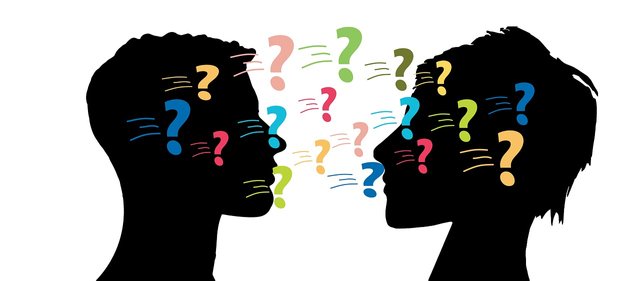Communication : Final Part - Language in Sociocultural and Cross-Cultural Communication

Communication : Final Part - Language in Sociocultural and Cross-Cultural Communication
Language in Sociocultural Contexts
Langauge usage in actual sociocultural contexts reveals social roles, attitudes and values.
- Speaking styles vary according to the situation. Teenagers, for instance, would use different words and ways of speaking when addressing their fathers and peers. Differences in social status are also indicated by speaking styles, especially where, as in specialised societies, these differences are accompanied by differences in levels of education. There is, for instance, a close link between language usage and issues such as hierarchy and power. According to Labov, elites and working-class people have different vocabularies and pronounce words differently.Labov's study makes clear what many of us know but do not admit: we do judge people's social status by the way they speak. The function of speech is not limited to communication information. What we say and how we say it are also ways of telling people what we are socially or, perhaps, who we would like to be.
Furthermore, patterns of conversation may differ according to gender.
- Language reveals much about the behavioural expectations of and relationships between the two genders (men and women) in a society. For example, to describe a man as aggressive has a fairly positive connotation, while it is quite negative when used to describe a woman. In English, the traditional inequality between men and women, and in particular the dominance of women by men, is expressed by words such as man instead of humankind, and he instead of he or she when referring to an individual. In South Africa we have the example of the hlonipha language of the Nguni, where a woman must avoid using words containing syllables that occur in the names of her husband's father and senior agnates; she must find alternative words in those cases.
Language is a symbol of identity and is apparent in situations where political identity becomes particularly important, such as attempts to gain independence. In such cases, efforts may be made to differentiate the language of a group from that of outsiders. For example, Hebrew is spoken daily by most Israeli citizens, whereas for centuries it was mainly used in Jewish religious ceremonies.
- Different dialects or special forms of language may be used in different sociocultural contexts. Among the Akan-speaking Ashanti of West Africa, a dialect of Akan known as Twi is used in ordinary conversation, while an archaic form of Twi is used for ritual purposes.
- Specialised vocabularies may be associated with particular occupations, such as engineering or medicine.
Language develops over time and sociocultural change is reflected in changes in vocabulary. Change may take place in the following ways:
- The rapid development of technology. This had led to a great increase in the technical vocabulary of industrialised societeies. In this regard, think of the words associated with developments in computer technology, such as hardware, software, e-mail, e-commerce, the internet, website and cyberspace. All of these terms have acquired a specific and generally recognised meaning. Think also, of how so-called sms-chat (LOL, ROLFL) has become part of everyday language use.
- Changes in social, political, economic and religious spheres.
Novelty, in this regard,
Haviland(2002:103) states that humans:
Tend to admire the person who comes up with a new and clever idiom, a new and useful word...complexity tends to be admired, while simplicity seems dull. Hence, about as fast as a language is simplified, purged of needlessly complex constructions or phrases, new ones arise.
- The introduction of new concepts or items of material culture. Words, like other cultural items, can pass from one culture to another. For example, in English, the word "yacht" (a type of sailing boat) was adopted from Dutch, while the Afrikaans word "trek" (meaning migration) is known throughout the English-speaking world.
The vocabulary of a language changes more easily than its sounds and grammar. New words can spread quickly when the need arises. There is also a tendency for names to change as the item named becomes more important, as the abbreviations "TV" (for television), "CD" (for Compact Disc) and "PC" (for personal computer) show.
Cross-Cultural Communication
Problems arise from misunderstandings between people with different first (home) languages are quite common. On a worldwide scale, such problems can have disastrous results. In a multicultural society, cross-cultural communication is frequently the arena not only for misunderstandings but also for irritation and other problems between people from different sociocultural backgrounds. Unless the initiator(s) and recipient(s) of a message are on the same sociocultural "wavelength", or at least understand one another's sociocultural background, there is little chance that they will attach the same meaning to a message.
Robbins (1998:323-323) identifies four problems related to language difficulties in cross-cultural communication:
- First, there are barriers caused by semantics. Sometimes words mean different things to different people, particularly people from different national cultures. Some words, for example, cannot be translated directly. Following the collapse of communism in the Soviet Union, Russians had difficulty with the British or Canadians because English terms such as "efficiency", "free market", and "regulation" were not directly translated into Russian.
- Second, there are barriers caused by word connotations. Particular words mean different things in different languages. Negotiations between. Americans and Japanese executives, for example, are often complicated by the fact that the Japanese word "hai" can be translated as "yes" but its connotation may be, "yes, I'm listening", when the Americans take it to be, "yes. I agree".
- Third, there are barriers caused by tone differences. In some cultures, language is formal, while in others it is informal. In some cultures, the tone of voice changes in line with the context: people speak differently at home, in social situations, and at work. Using an informal style where a more formal style is appropriate can cause embarrassment.
- Fourth, there are barriers caused by differences in perceptions. People who speak different languages view the world in different ways. The Inuit perception of snow, for instance, differs from other societies, as is apparent from the many words the Inuit have for snow.
Concluding Remarks
In this series, I introduced you to the important issue of communication and indicated different ways in which people communicate with one another. Methods of communication are socioculturally determined. Of all the different forms of communication, language is by far the most important. As a result, the analysis of language has been developed into a significant field of study, not only among linguists, but also among anthropologists.
The End
Thank you for reading.
Images are linked to their sources in their description and references are stated below.
Authors and Text Titles
SP Robbins 1998: Organizational behaviour
RG Twala 1951: African Studies
D Costello 1990: Beadwork and cultural significance amongst Xhosa speaking peoples
H Applebaum 1987: Introduction: symbolic and humanistic Anthropology
WA Haviland 2008: Anthropology: The Human Challenge 12th Edition
C Delaney 2004: Investigating Culture
Beattie, J 1964: Other cultures
FS Miller 1979: Introduction to cultural anthropology
Seymour-Smith 1986: Macmillan dictionary of anthropology
Haviland 2002: Cultural anthropology
C Geertz 1973: Interpretation of Culture
C Levi-Strauss 1977: Structural Anthropology vol 2
JJ Honigman 1976: The development of anthropological ideas
S Nanda & PL Warms 2004: Cultural Anthropology
https://en.wikipedia.org/wiki/William_Labov








You received a 10.0% upvote since you are not yet a member of geopolis.
To read more about us and what we do, click here.
https://steemit.com/geopolis/@geopolis/geopolis-the-community-for-global-sciences-update-3
If you do not want us to upvote and comment on your posts concerning earth and earth sciences, please reply stop to this comment and we will no longer bother you with our love ❤️
"Language develops over time and sociocultural change is reflected in changes in vocabulary" That is true and inevitable in a language that is alive . When languages are in contact , they , undoubtedly, influence one another. In such cases, languages phenomena like borrowings or loan words and calques (semantic or syntactic calques) appear. The only languages that do not evolve are dead languages . Some language purits call it " contamination " when, in fact , that should be called language development.
Other linguistic variations are those related to time (historical variations) and geography. Thanks for another first-class post.
Still killing it.
Good stuff @zest
Hi @kryptik!!!
You were the very first person to help on this platform, I will never forget that:)
I am eternally grateful.
Lol don’t mention it.
You made it easy by standing out.
Beautiful piece of writing. I loved reading through. I like your style of writing and wordings. Thamks for sharing. You are such a creative writer
Thank you for taking the time to read:)
Excellent writing, I do not stop reading any of the series, I had the opportunity to read (narrative analysis: oral versions of personal experience)Labov. I have not finished reading but it is very interesting. Good job
Thank you so much for taking the time to read:)
Wow your cover looks amazing! Wonderful and helpful article of anthropology! Communication is an ubiquitous. Therefore, we need to respect each and everyone culture. It's really helpful for me, now I have to read all your other topics too.
Hi @kittynick,
Thank you so much for the compliment, really glad you found the post helpful and useful. Thank you
Good writing, peaceful communication culture communication
Nice article, I really find the concept of semantics fascinating. I am English but now live in Italy, and I've noticed how our different cultures have different concepts. The mind picture is a funny old thing.
Thanks @zest